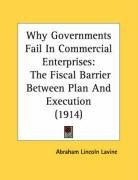circuits of victory

Purchase of this book includes free trial access to www.million-books.com where you can read more than a million books for free. This is an OCR edition with typos. Excerpt from book: CHAPTER II THE LEAVEN WORKS Steadily, surely, inexorably, the leaven of autocracy was at work. "Progress through Conquest" was the master motif. Everything that Prussia had, she had acquired by force. In 1864, with one stroke of her sword, she had, with the aid of Austria, detached Schleswig-Holstein from Denmark. The division of these spoils she used as an excuse for picking a quarrel with Austria. Within three weeks after the breaking off of diplomatic relations, the war with Austria was practically over. Austrian ascendancy was at an end, the North German states were annexed, and Prussia had won her right to do with Germany as she pleased. France came next. In 1870, Bismarck succeeded, by a trick, in provoking a quarrel with Napoleon III. The Prussian legions hastened across the Rhine. Within seven weeks after the opening of hostilities, two French armies were defeated and captured, and the French Emperor himself made a prisoner in the d6bacle of Sedan. Paris was taken, France humbled in the dust, and Alsace-Lorraine became German territory. In the same act, the South German states had joined the North German Federation, and the final unification of Germany under Prussia became established. Bismarck was now for letting well enough alone for the time being; building up a new Germany by internal economic measures, turning his back upon colonial expansion, and keeping his enemies apart by tricks of the diplomatic trade. But in 1888, William II became Emperor of Germany, and promptly dropped his pilot. His ideas on Germany were different from those of the Iron Chancellor. Germany was entitled to "a place in the sun," and she was going to get it. Why, here was a new Germany, the most powerful nation on the European continent. Should she alone, of the great na...
Info about the book
Author:
Series:
Unknown
ISBN:
0275950220
Rating:
5/5 (3)Your rating:
0/5
Languge:
English
Users who have this book
Users who want this book
What readers are saying
What do you think? Write your own comment on this book!
write a commentif you like circuits of victory try:
Other books by this author
Do you want to exchange books? It’s EASY!
Get registered and find other users who want to give their favourite books to good hands!



